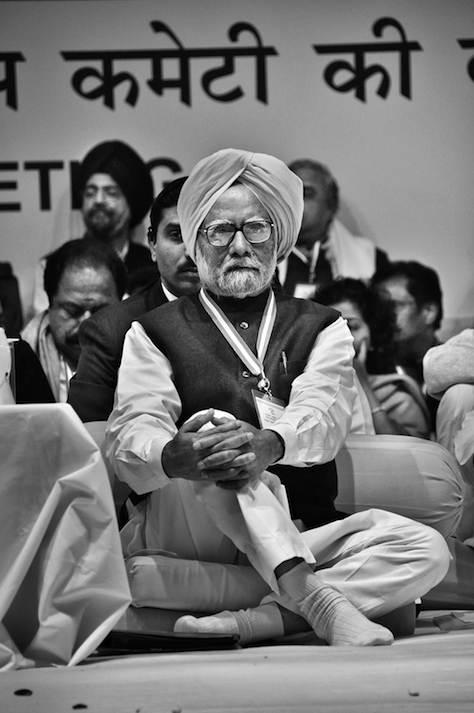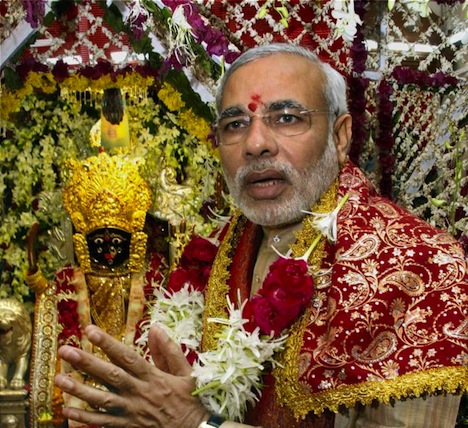From Scroll.in comes this piercing photo of former Indian prime minister Manmohan Singh in January, four months before the landslide election that delivered to Singh’s ruling Indian National Congress (Congress, भारतीय राष्ट्रीय कांग्रेस) its worst defeat in Indian history.![]()
Raghu Rai, a photographer and journalist, captured images of both Singh and India’s current prime minister Narendra Modi for his new book, The Tale of Two: An Outgoing and An Incoming Prime Minister.
The photos of both candidates are compelling, but the shots of Singh are particularly so, coming after a decade as prime minister that most Indians (and non-Indians) consider disappointing.
An economist by training, Singh made his international reputation as the finance minister in the government of P. V. Narasimha Rao between 1991 and 1996, spearheading the most thoroughgoing set of economic liberalization reforms in India’s post-independence history.
When Sonia Gandhi, the Italian-born widow of former prime minister Rajiv Gandhi and daughter-in-law of former prime minister Indira Gandhi, demurred from taking the premiership after Congress won a surprise victory in the 2004 parliamentary elections, she turned to Singh instead, boosting hopes that India might enact further reforms, especially with respect to liberalizing foreign development. It also gave India its first leader from the Sikh community.
But those economic reforms never happened, which voters didn’t seem to mind in Congress’s first term. After all, the economy was still growing at breakneck speed and Indian voters hadn’t become acquainted with the dozens of scandals (e.g., Coalgate, the 2g spectrum scandal) that would come to define Congress’s second term, which Singh and Gandhi won easily enough in 2009 under the steam of India’s stellar growth.


